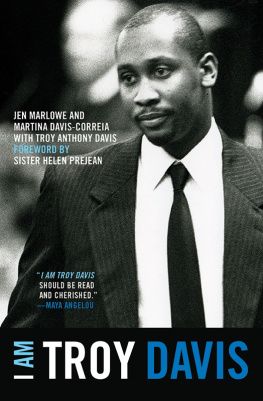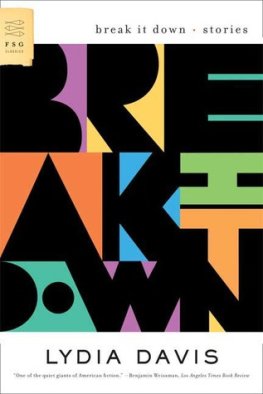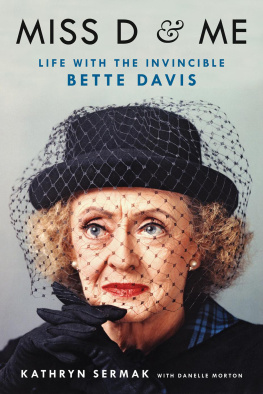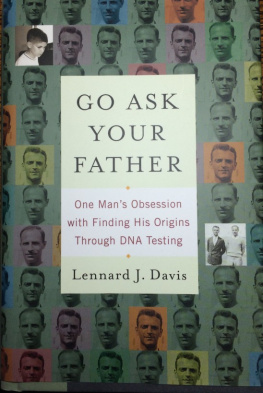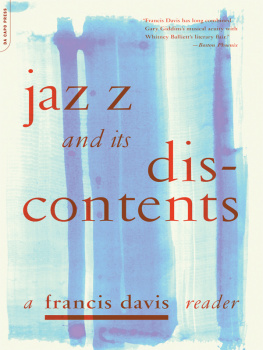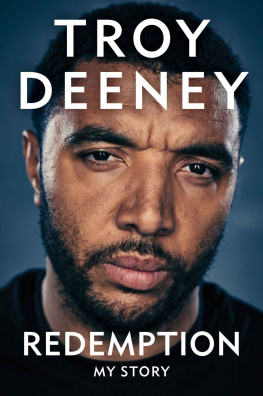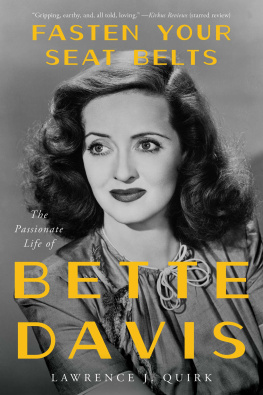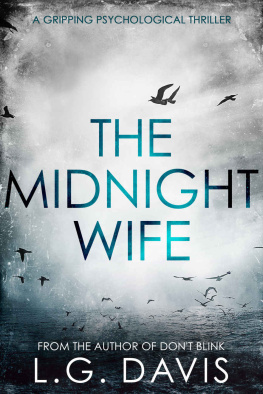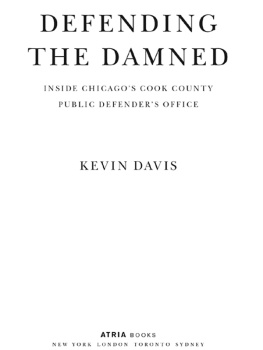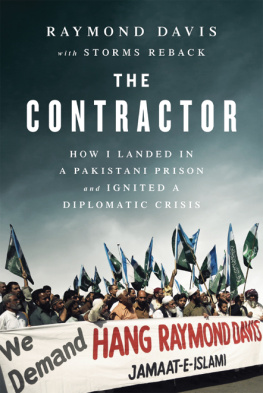Praise for I Am Troy Davis
Here is a shout for human rights and for the abolition of the death penalty. This book, I Am Troy Davis , should be read and cherished. It will inspire courage in the hearts of those who are willing to use their efforts to save lives and increase the quality of life for all people.
Dr. Maya Angelou, author, I Know Why the Caged Bird Sings
Like Trayvon Martins monumental murder, the execution of Troy Davis was a historic awakening for this countryan awakening of the deadly consequences of white supremacy. Dont miss this book!
Cornel West, professor of philosophy and Christian practice, Union Theological Seminary
Martina and Troy are heroes from a family of heroes. This story of their lives is also a call to action. It asks each of us to pick up where they left off by ending the death penalty once and for all so the risk of executing an innocent person is finally eliminated in America.
Benjamin Todd Jealous, president and CEO, NAACP
Read this book, about Martina Davis-Correia and Troy Anthony Davis. The lives of this sister and brother were tragically cut short, one by cancer, the other through a cruel injection of a lethal, chemical cocktail in the final act of a profoundly unjust criminal justice system. This book captures their unflagging courage in confronting the challenges thrust upon them. More than history, more than eulogy, I Am Troy Davis is an urgent call to action.
Amy Goodman, host, Democracy Now!
I Am Troy Davis is heart-stopping proof that the death penalty didnt just kill an innocent Troy Davis and break and bury his gorgeous family, but it charred the soul of America. This book will devastate you, piss you off, and then inspire you to work with your life to end the death penalty forever.
Eve Ensler, playwright and activist
I Am Troy Davis is a painful yet very important book, one that will bring you face to face with the human impact of the death penalty system, prompt you to think deeply about the flaws in our criminal justice system, and inspire you to stand with all those who have been wrongfully placed on death row.
Susan Sarandon, actor and activist
In this moving and intimate portrait of Troy Davis and his courageous family, Jen Marlowe restores to Troy his humanity, and reminds us why every life matters, and why capital punishment makes this country a pariah among the worlds democracies.
Gloria Steinem, author and activist
Martina Correias heroic fight to save her brothers life while battling for her own serves as a powerful testament for activists.
Liliana Segura, the Nation
I Am Troy Davis takes readers on the journey of a remarkable family whose faith, love, integrity, and convictions propelled their fight for their loved one and a larger cause. Jen Marlowes careful and sensitive collaboration with the Davises has yielded a narrative that will surely inspire readers to pick up the torch that Martina Davis-Correia so bravely carried for social justice and human dignity with every ounce of her being and every day of her life.
Laura Moye, Amnesty International USA former death penalty abolition campaign director
A must-read bookthe searing, heartbreaking story of a strong and loving family caught in the vortex of a dysfunctional criminal justice system.
Anne Emanuel, Georgia State University law professor and ABA Georgia Death Penalty Assessment Chair
For all those who have been impacted by our countrys failed death penalty policy;
For those currently on death row;
For those who have been executed, for those who have been exonerated, and for their families and loved ones, as well as for the families and loved ones of murder victims and for the murder victims themselves;
For all those who have been in the trenches for years, struggling to replace the death penalty with a more humane, more effective form of justice;
For the young people in our lives whom we love deeply: DeJaun, Kiersten, Rene, Alex, and Mayayour futures are the reason we all must continue to struggle for a more just world;
To the memory of the Davis familys three angel-warriors for justice: Virginia, Troy, and Martina, your presence is with us each and every day
Foreword
Its 1999 and Im in the death house at Angola State Prison in Louisiana. In six hours, death row inmateand my friendDobie Williams will be executed for a crime I believe he did not commit. A guard is standing near me. Behind us, Dobie and his family are saying a last, tearful farewell. The guard tells me hes been here for every one of the twenty or so executions since 1983. He jabs his thumb toward the visiting table and whispers, We got to get rid of the death penalty once and for all, because look whos in here. Its always families like this.
I wondered then what he meant and I still wonder now. Was he talking about families of color? Was he talking about poor families? Or was he simply talking about the grief common to all families who have seen their beloved children killed at the hands of others?
As Dobie was being executed, another family was fiercely defending their son on Georgias death row, though I hadnt yet learned about this familys struggle. I first met Martina Davis-Correia, sister of death row inmate Troy Anthony Davis, at the National Coalition to Abolish the Death Penalty conference in 2008 and was immediately struck by her fierce love for her brother. When she asked me if I would help Troy, there was no way I could refuse. Over the three years I knew Martina, her son DeJaun, and the rest of the Davis family, I was touched not only by their unflappable faith in Troy but by their deep love for one another and their tough-as-nails determination in going up against the US justice system.
This is a system plagued by institutionalized racism, with an evident bias against poor defendants, defendants of color, and those convicted of murdering a white victim. This is a system that rewards tough on crime district attorneys who seek the death penalty, even in the face of exculpatory evidence and incompetent state-appointed defense lawyers. This is a system that causes violence to familiesboth of the victims and of the condemned.
In my thirty years of working on deaths threshold I have seen firsthand how the families of murder victims suffer during the drawn-out appeals process. This may be the quietest, most pernicious legacy of the death penalty: the irreparable harm it inflicts on families, a pain made all the more unjust by its arbitrary application.
The death penalty has a history of capricious application. In the 1972 case Furman v. Georgia , the US Supreme Court enacted a moratorium on the death penalty. The court not only found the imposition of the death penalty to be characterized by arbitrariness and racial bias but ruled that it constituted cruel and unusual punishment on moral grounds.
These death sentences are cruel and unusual in the same way that being struck by lightning is cruel and unusual... the Eighth and Fourteenth Amendments cannot tolerate the infliction of a sentence of death under legal systems that permit this unique penalty to be so wantonly and so freakishly imposed, wrote Justice Potter Stewart, as one of the majority.
The landmark decision of Furman , however, was reversed only four years later in Gregg v. Georgia , in which the Supreme Court ruled that so long as states proved that their methods of execution followed humane guidelines, it was legal to impose the death penalty. The issue of capital punishments arbitrarinessits racial bias, among other concernswas addressed by mandating sentencing and appeals-process reforms. But no matter the extent of the tinkering that the death penalty has undergone during the thirty-six years since Gregg , there exists to this day wide regional variation in the application of the death penalty as well as vast disparities in capital sentencing along racial and economic lines.
Next page
